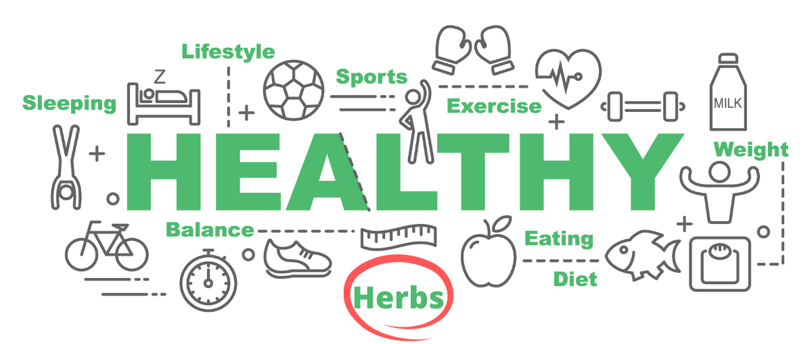Breaking the Diet Cycle: A Mindful Approach to Lasting Weight Loss
Discover mindful eating techniques to break the diet cycle. Learn to savor each bite and recognize hunger cues for healthier habits and sustainable weight loss. Implement practical techniques to enhance awareness during meals and fostering healthier habits.
NUTRITION AND DIET
1/16/20255 min read


Breaking the Diet Cycle: Embracing Mindfulness for Sustainable Health
Imagine stepping off the emotional rollercoaster that is the diet cycle, a ride many know all too well. You lose weight, celebrate small victories, but soon find yourself back where you started. Breaking free from this frustrating loop requires a shift in mindset. Mindful eating is key to lasting weight loss, fostering a balanced relationship with food rather than a restrictive one. By focusing on the joys of nourishing your body rather than punishing it, you'll find a path to well-being and sustainability.
You might recall times when diets felt more like battles, each failed attempt adding a layer of guilt and frustration. The trick is in changing that narrative. Embrace a supportive lifestyle that encourages not just healthier habits, but also compassion towards yourself. This approach not only helps in shedding extra pounds but also enriches your overall quality of life.
Consider starting with small changes—perhaps swapping your evening snack for a healthy recipe you find online or trying an engaging workout routine. Building a community with like-minded individuals can provide encouragement and accountability. And if you're looking for tools to aid your journey, products like the "Mindful Eating Book" on Amazon UK could serve as helpful guides.
Key Takeaways
Mindful eating fosters a healthy relationship with food.
Self-compassion is crucial in breaking the diet cycle.
A supportive lifestyle enhances well-being and weight loss.
Understanding the Diet Cycle
Breaking free from the diet cycle is about more than just changing what you eat. It involves recognising the mental and emotional patterns linked to dieting. You may have experienced frustration when diets fail and led to regaining weight. Understanding these patterns can help you find healthier and more sustainable ways to approach eating and self-care.
The Psychology Behind Yo-Yo Dieting
The diet cycle often starts with high hopes and motivation. You might set strict rules for yourself, believing this time will be different. Initially, you could see quick weight loss, leading to excitement and a sense of accomplishment.
However, these restrictive habits can be hard to maintain. Over time, they can make you feel deprived. This feeling of restriction can lead to cravings and eventually overeating or binge eating. When you break these strict rules, it might cause guilt and shame, which further fuels the cycle.
You may find yourself in a cycle of restricting and overeating, impacting your mental health. It's crucial to recognise these patterns to find balance and promote a healthier relationship with food.
Physical and Emotional Effects of Weight Cycling
Repeated weight loss and gain, often called weight cycling or yo-yo dieting, affect more than just your waistline. Physically, this cycle can impact your metabolism, making weight loss harder each time. Your body may start storing more fat in response to perceived food scarcity.
Emotionally, the constant cycle can take a toll on your mental well-being. Feeling like you are always on a diet can lead to anxiety, frustration, and lower self-esteem. I've been there, guilt-tripping myself after breaking another diet rule.
To break this cycle, consider focusing on nutrition and mindful eating instead of strict diets. Engage in activities that bring joy rather than focus solely on weight loss. Finding balance is key to building a more peaceful relationship with food and your body.
Essentials of Mindful Eating
Mindful eating focuses on being present during meals and listening to your body's cues. It often helps in altering eating habits, curbing cravings, and reducing emotional eating.
Techniques and Benefits of Mindful Eating
Mindful eating involves engaging all your senses while eating. This means really tasting and smelling your food. Slow down to enjoy each bite and notice textures and flavours. This encourages you to appreciate your meal better, making it more enjoyable and satiating.
Benefits include greater satisfaction and fewer instances of overeating. You pay attention to when you feel full rather than letting your plate dictate when your meal ends. This approach also supports sustainable weight loss by promoting balanced eating habits.
Incorporating mindful eating might feel odd at first, like when I realised how quickly I always finished my breakfast. Now, taking my time has become a highlight of my morning routine.
Consider keeping a journal to track your progress. You might be interested in a food diary like the Wellbeing Journal, available on Amazon UK.
Combating Cravings and Emotional Eating
Mindful eating is a tool against cravings and emotional eating. Often, cravings are linked to emotions, not hunger. By recognising this, you can handle these moments better. Use techniques like deep breathing or a short walk to distract yourself when you feel an urge to eat emotionally.
Mindful eating encourages you to ask yourself why you're eating. Is it hunger? Boredom? Sadness? By doing this, you make more intuitive eating choices. You learn to differentiate between needing nourishment and seeking comfort. Remember, it's okay to sometimes find comfort in food, but habitual emotional eating can be problematic.
Trying guided meditations can help. I once used an app during a difficult time that focused on mindful practices. They helped me pause before reaching for snacks. If you're interested, search for "mindful eating meditation" on your app store.
Building a Supportive Lifestyle
Creating a lifestyle that supports your weight management journey is key. Balancing physical activity, self-care, and realistic goal-setting can boost your self-esteem and improve mental health. These elements contribute to a more sustainable and encouraging environment.
Incorporating Physical Activity and Self-Care
Including physical activity in your daily routine is crucial for weight management and mental wellness. Whether it's a morning jog or a relaxing yoga session, movement helps boost self-esteem and improves your well-being. I remember starting with short evening walks after dinner, which gradually turned into a cherished habit.
Alongside exercise, self-care is just as vital. Prioritising activities that uplift your spirit, like reading a good book or taking a warm bath, provides essential mental health benefits. Consider using the Fitbit Versa 3 from Amazon UK to track your steps and heart rate while staying motivated. Investing in your self-worth through these practices nurtures both your body and mind.
Setting Realistic Goals and Embracing Non-Scale Victories
Setting manageable goals can enhance your self-compassion and make your weight loss journey more fulfilling. Small steps like aiming to eat an extra serving of vegetables or drinking more water each day can lead to bigger achievements. Once, I celebrated fitting into an old pair of jeans— a satisfying victory that wasn't tied to the number on the scale.
Acknowledging non-scale victories can keep your motivation high. Improvements in energy levels, mood, or sleep quality are just as important. These successes reflect positive changes in your healthy eating habits and overall well-being. You might find using a Measuring Tape from Amazon UK helps track these tangible yet motivating changes such as inches lost around your waist.






